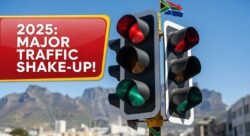Free Basic Electricity South Africa: Are you struggling to keep up with rising electricity costs? I’ve got some good news for you. The South African government continues its commitment to providing Free Basic Electricity (FBE) to eligible households in 2025. This essential program aims to ensure that even the most vulnerable citizens have access to a minimum amount of electricity each month. As energy prices continue to climb, this initiative has become a crucial lifeline for many families across the nation, helping them meet their basic energy needs without breaking the bank.

What is Free Basic Electricity?
Free Basic Electricity is a government subsidy program that provides a specified amount of free electricity to qualifying low-income households. The program typically offers 50-60 kWh per month, which is enough to cover basic lighting, small media access, and limited cooking needs. This allocation, while modest, makes a significant difference for families living below the poverty line. The Free Basic Electricity program operates through municipalities and Eskom, South Africa’s primary electricity provider, who implement the subsidy directly on the electricity bills or prepaid meters of eligible households. I’ve seen firsthand how this program helps families maintain dignity and basic comfort despite financial hardships.
Who Qualifies for Free Basic Electricity in 2025?
The eligibility criteria for Free Basic Electricity South Africa in 2025 focuses primarily on households that are classified as indigent according to municipal guidelines. Generally, to qualify, your household income must fall below a certain threshold, typically around R3,500 to R4,500 per month, depending on your municipality. You must also be a legal resident of South Africa with a valid ID and be registered on your municipality’s indigent register. Some municipalities use an automatic identification system based on property values and electricity consumption patterns, while others require formal application. It’s worth noting that the exact criteria may vary slightly between different municipalities across the country.
How to Apply for Free Basic Electricity
Applying for Free Basic Electricity South Africa is a straightforward process, but it does require some documentation and patience. To get started, you’ll need to visit your local municipal office and request an indigent subsidy application form. When submitting your application, be prepared to provide proof of residence, identity documents for all household members, proof of income (or lack thereof), and sometimes bank statements. Many municipalities have now digitized parts of the application process, allowing you to check your status online. The verification process typically takes 2-4 weeks, after which successful applicants will start receiving their Free Basic Electricity allocation automatically on their next billing cycle or prepaid purchase.
- Visit your local municipal office with required documents
- Complete the indigent household registration form
- Submit proof of income, residence, and identity documents
- Wait for verification (typically 2-4 weeks)
When Will Benefits Be Applied?
Once approved for the Free Basic Electricity program, you can expect to see the benefits applied to your account within one billing cycle. For prepaid electricity users, the free allocation is typically loaded at the beginning of each month when you make your first purchase. It’s important to note that the free allocation doesn’t roll over – if you don’t use your free units within the month, they expire. The program runs continuously throughout 2025, with annual reviews of eligibility status. If your financial situation improves above the threshold, you may no longer qualify for the program. Conversely, if you weren’t eligible before but your circumstances have changed, you can apply at any time during the year.
Real-Life Impact of Free Basic Electricity
I recently spoke with Mrs. Thembi Nkosi from Soweto, who shared how the Free Basic Electricity program has affected her family. “Before registering as an indigent household, we often had to choose between electricity and food in the last week of the month,” she explained. “Now, with the free 50 kWh, we can at least keep the lights on and charge our phones, which my children need for school research. It might not seem like much to some people, but for us, it means dignity and safety.” Stories like Mrs. Nkosi’s highlight the real difference that Free Basic Electricity South Africa makes in the lives of vulnerable citizens across the country.




